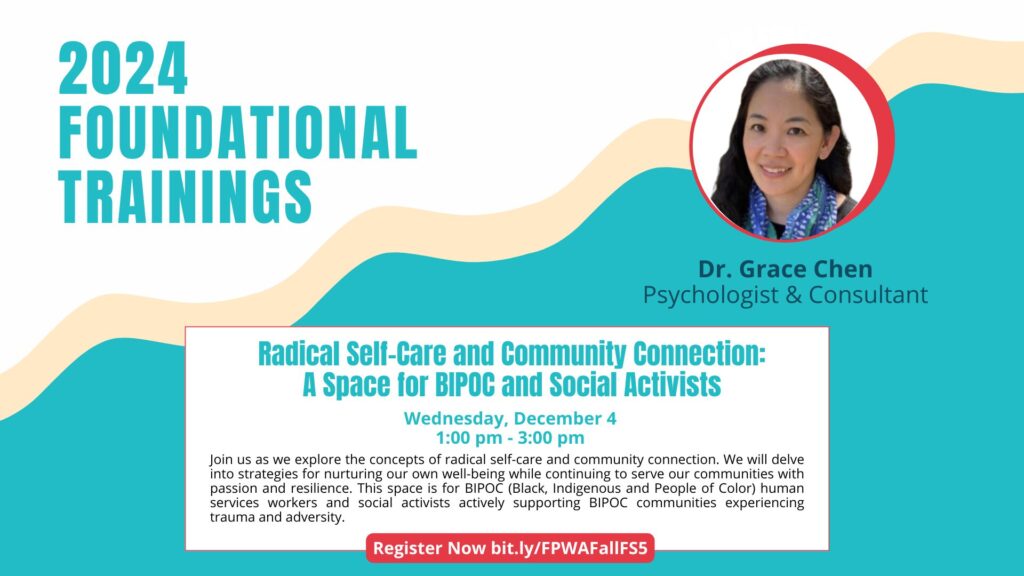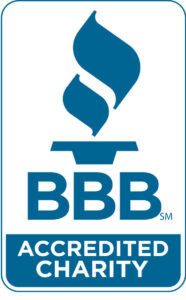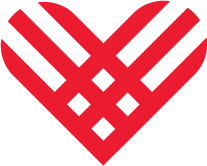This two-part series is a dedicated space for BIPOC (Black, Indigenous and People of Color) human services workers and social activists actively supporting BIPOC communities experiencing trauma and adversity.
We understand the unique challenges and emotional toll of this work, and we believe in the power of being well to serve well. Join us for two sessions of reflection and connection as we explore the concepts of radical self-care and community connection. We will delve into strategies for nurturing our own well-being while continuing to serve our communities with passion and resilience.
Register Here >>
About the Presenter
Dr. Grace Chen, Psychologist and Consultant
Grace A. Chen, Ph.D., is a licensed psychologist (CA, WA) and consultant based in the San Francisco Bay Area, CA. She earned her Ph.D. in Counseling Psychology from The University of Texas at Austin. At the heart of her work is the value of radical self-care – a mindset of engaging in self-care in order to be more of who you’d like to be in the world and in relation with others. Dr. Chen provides individual psychotherapy to adults in California and Washington. She is a member of the Psychology of Radical Healing Collective (with fellow psychologists of color) and provides consultation and group facilitation regarding radical healing from racial trauma. Dr. Chen also supports psychology graduate students in their professional development through her Psych Grad Corner workshops, advising, and online resources. She values sharing knowledge about wellness and resisting oppression through blogs, podcasts, and community presentations. In her personal life, Dr. Chen has co-facilitated an anti-racist parent group and anti-racism discussions in her local community. She also enjoys hiking, watching kdramas, and spending time with her family.





